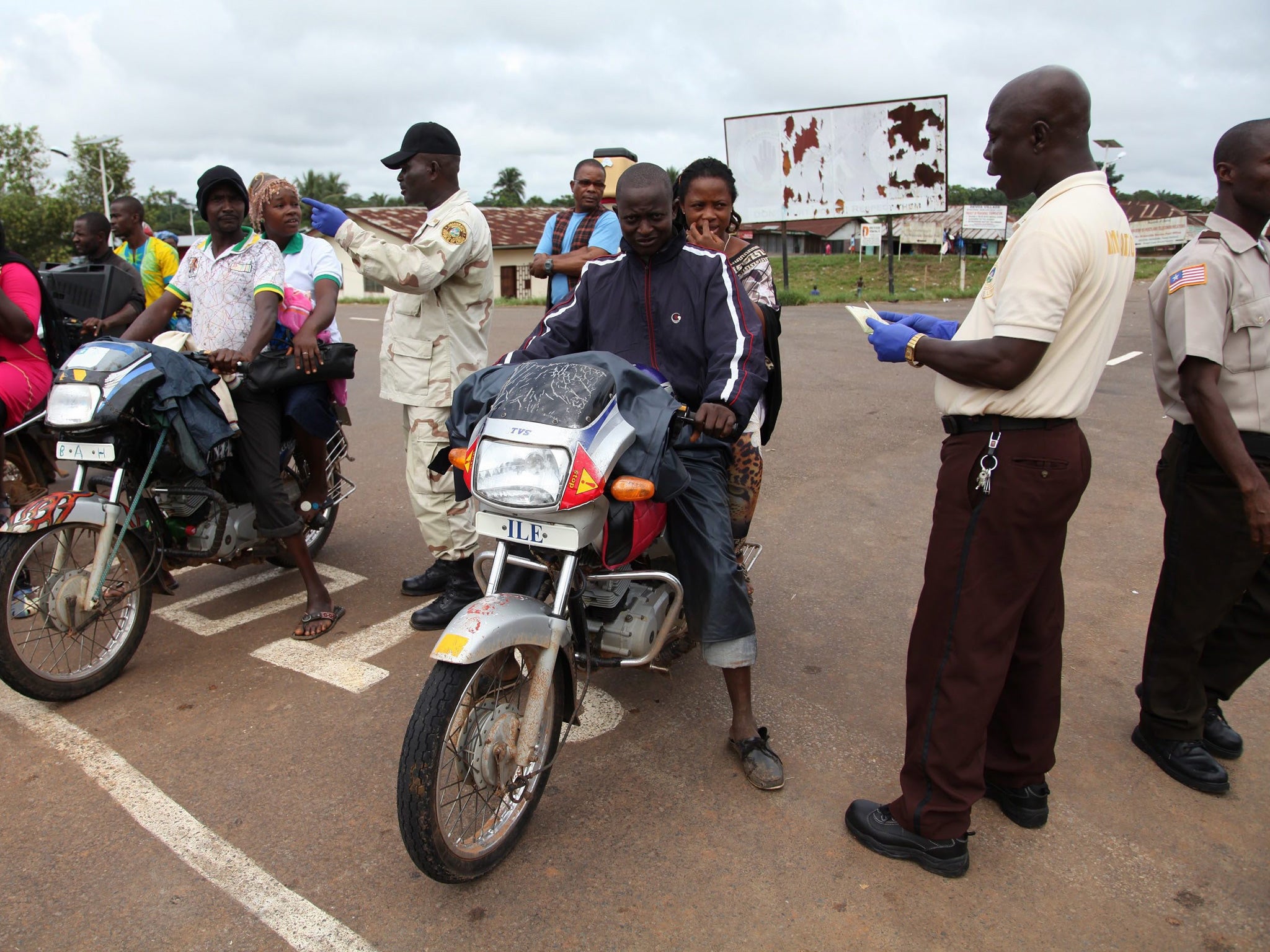The Ebola outbreak teaches us an important lesson about aid
We cannot insulate ourselves from the suffering of others, or the diseases they suffer


Your support helps us to tell the story
From reproductive rights to climate change to Big Tech, The Independent is on the ground when the story is developing. Whether it's investigating the financials of Elon Musk's pro-Trump PAC or producing our latest documentary, 'The A Word', which shines a light on the American women fighting for reproductive rights, we know how important it is to parse out the facts from the messaging.
At such a critical moment in US history, we need reporters on the ground. Your donation allows us to keep sending journalists to speak to both sides of the story.
The Independent is trusted by Americans across the entire political spectrum. And unlike many other quality news outlets, we choose not to lock Americans out of our reporting and analysis with paywalls. We believe quality journalism should be available to everyone, paid for by those who can afford it.
Your support makes all the difference.Ebola has hit our headlines, finally. For months, communities in three African states – Liberia, Sierra Leone and Guinea - have been experiencing a swathe of suffering and death, with scant international attention.
To date, all we’ve heard about Ebola has been from the occasional harrowing report from an admirable Western aid worker on the front line. That's changing. This morning, BBC 4's Today Programme carried an interview with Lewis Brown, the embattled Liberian Minister for Information, in which he spelled out the extreme measures being considered to control the outbreak.
There is a huge amount of suffering in the world, but we should all spare a thought for communities stalked by a disease for which there is no cure.
Now there’s perceived to be a threat to Britain, however distant, the coverage has ramped up. What’s yet to appear, however, is much reflection on the conditions on the ground in Africa that have allowed the outbreak to rumble on: the under-resourced health services; the population denied the education that would enable them to understand what’s happening to them, the inadequate government structures that lack the ability to document, trace and explain the virus.
We are all implicated in this, and not just through history, but recent behaviour: the actions of multinational companies prepared to bribe their way to massive profits at the expense of honest governance, that fail to pay fairly for the resources they remove, or provide for the people they displace; the failure to provide effective aid for development and to provide support and a fair trading environment for small farmers and manufacturers in great stretches of the developing world.
Britain’s current government deserves credit for increasing aid to 0.7 per cent of Gross National Product (GNP), albeit with an unhealthy and inappropriate focus on the economic benefits to Britain that result. But more can and should be done.
The Green Party calls for at least 1 per cent of our GNP to be paid out in aid – and directed to places where it will do the most good, through mechanisms that will best benefit local societies and states, and not British profits.
There are lots of reasons why we should be doing this, the foremost among them being that it is the right thing to do. It is an acknowledgement of Britain’s privileged position as a rich country, and of the fact that a lot of that wealth has been built at the cost of what is now the developing world.
Today is a good time to reflect on another reason why boosting aid, and making sure it is best targeted for recipients, is not just a good idea, but essential.
We live in on a small, interconnected planet. We cannot insulate ourselves from the suffering of others, or the diseases, like Ebola, that they suffer.
Ensuring that every human being on the planet has access to the resources for a decent, healthy life isn’t just an admirable aim. It’s an essential one.
Join our commenting forum
Join thought-provoking conversations, follow other Independent readers and see their replies
Comments